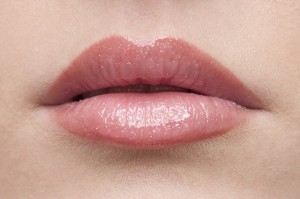Understanding the Common Causes of Worn Teeth: Bruxism, Abrasion & Erosion
May 10, 2012
by Kerrisdale Dentist
Comments are off
 One of the most common causes for worn teeth is bruxism. Bruxism refers to tooth grinding or jaw clenching, especially during sleep, which wears down your enamel at an accelerated rate. You may have bruxism and not be aware of it, so contact 123 Kerrisdale Dental Centre for an appointment and we’ll let you know if your teeth are showing signs of bruxism and what you can do if that’s the case.
One of the most common causes for worn teeth is bruxism. Bruxism refers to tooth grinding or jaw clenching, especially during sleep, which wears down your enamel at an accelerated rate. You may have bruxism and not be aware of it, so contact 123 Kerrisdale Dental Centre for an appointment and we’ll let you know if your teeth are showing signs of bruxism and what you can do if that’s the case.
Abrasion is another common cause of worn teeth. Simply put, abrasion describes tooth enamel that is worn down by foreign objects in the mouth. Toothbrushes are the most common type of abrasive objects. If you brush your teeth too vigorously, you risk wearing down your enamel too much. Chewing pens or fingernails can cause teeth to lose enamel fast as well, as can an oral piercing or tongue ring.
Erosion is the third common cause of worn teeth. Erosion is caused by any substance that dissolves the enamel. Citric acid is the number one eroding agent of tooth enamel, but if you or a loved one has made a habit of purging, the gastric acids in your stomach can also dissolve your enamel.
At 123 Kerrisdale Dental Centre, we offer several dental solutions for your worn teeth, but it’s our policy to work with you to address the cause of the problem, not just the symptoms. Take care of your teeth and contact 123 Kerrisdale Dental Centre today for an appointment.
Get The Rest You Need: Put A Stop To Teeth Grinding Today!
 Has anyone ever told you that you grind your teeth in your sleep? Perhaps a parent or partner may even try to wake you up while you’re grinding. Unfortunately, most people who grind their teeth in their sleep, don’t even know they’re doing it. Teeth grinding is one of the most common sleep disorders referred to in the medical profession as Bruxism. The symptoms for which are broad and far reaching, including: jaw stiffness and soreness, anxiety, stress, depression, headaches as well as insomnia. Your health partners at 123 Kerrisdale Dental Centre want to empower you to combat Bruxism, so you wake up feeling rested, pain free and ready for the day!
Has anyone ever told you that you grind your teeth in your sleep? Perhaps a parent or partner may even try to wake you up while you’re grinding. Unfortunately, most people who grind their teeth in their sleep, don’t even know they’re doing it. Teeth grinding is one of the most common sleep disorders referred to in the medical profession as Bruxism. The symptoms for which are broad and far reaching, including: jaw stiffness and soreness, anxiety, stress, depression, headaches as well as insomnia. Your health partners at 123 Kerrisdale Dental Centre want to empower you to combat Bruxism, so you wake up feeling rested, pain free and ready for the day!
Quality of sleep factors greatly into how you perform in your waking hours, whether at work or at home. If you are resting well, you are feeling well and needless to say the reverse is true as well. There are several ways dental professionals diagnose and treat bruxism. As with any other health problem, early detection is the key to treating this particular sleep disorder. There are various ways to test the frequency and duration of your grinding throughout the night. Most importantly, there are treatment methods available such as dental guards and splints which are typically worn on a long-term basis during each and every night’s sleep.
Over the counter mouth guards sold at drug stores, while inexpensive, are considered by dental professionals to be ineffective in preventing tooth erosion and further decay. A good night’s rest is imperative to maintaining a healthy quality of life for you and your family. If you or your children experience bruxism, consult your Vancouver Dental expert for treatment options as your oral health depends upon it.
Contact our Vancouver dental clinic to find out how we can help you get the rest you need.
Recent Posts
Categories
Search
Book Your Checkup Today!

Quick Links
Contact Us
123 Kerrisdale Dental Centre
2899 West 41st Ave. Vancouver, BC
Email: info@kerrisdaledentist.com
Phone: 604 263 7355
2899 West 41st Ave. Vancouver, BC
Email: info@kerrisdaledentist.com
Phone: 604 263 7355
Our Hours
- Mon:-
- -
- -
- - Every Other Thursday 8:00 AM to 5:00 PM.
- -
- Closed
- Closed
123 Dentist Member
 At Kerrisdale Dental, we’re very proud and fortunate to be members of BC’s own 123 Dentist – Community Dentist Network.
At Kerrisdale Dental, we’re very proud and fortunate to be members of BC’s own 123 Dentist – Community Dentist Network.Click here to learn more about the 123 Dentist network
Copyright Kerrisdale Dental ©
